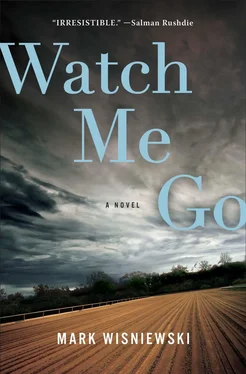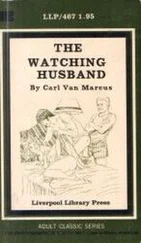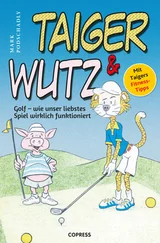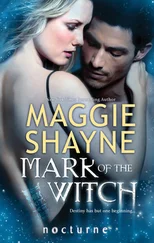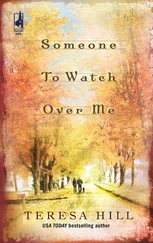And Tug, as I stepped onto the pier, was backstroking toward me. By the time I passed the second or third piling, he’d stopped to stand between the pier and a tangle of this year’s weeds, ripples around him fading, a minnow nipping at the taut skin just above his navel. He had the kind of shoulders you wanted to drape your arms over while you made out and talked, and I stopped walking only to tilt my head slightly, my insides gone to pieces about how the tan I’d gotten in Arkansas without trying might overwhelm any upstate New York man with skin as pale as his. And I’ll admit that, already, there was this tightness in my chest, though back then I wasn’t sure this was a sign of love — as I saw things then, he’d just made me go shy.
But it turned out to be me who said hello first, even as I’d now have sworn our eyes were putting a charge in us both. Then there we were, this other jock’s only child and I, carrying on like good sports, with me telling him about my life’s dream to ride racehorses professionally, about how I was sure I’d never win as many races as my father had but believed I’d still try. And my mention of my father had Tug’s eyes darting everywhere except those sun-bleached weeds, and I wondered if, instead of desire, he was destined to merely feel sorry for me.
“But right now?” I said. “I’m looking for work that’ll pay up front.”
“Wish you could help on my farm,” he said. “But business is slow.”
I shrugged.
“Anyway,” he said. “Sounds like you need per-hour work.”
“Already have some,” I said. “Fishin’ for pay for some old guy.”
“Here?” he said. “I mean — on the lake?”
I nodded.
“Anyone I know?”
“I think your father said… Jasper?”
Jasper, as it would turn out, was Tug’s family’s oldest friend from the Finger Lakes racetrack. Back when Tug had been the kid who’d press his face against the chain-link alongside the homestretch, Jasper had been the soul entrusted to place bets for Tom if Tom found himself on an entry that seemed doped or otherwise geared up to win. Jasper would stand in the crowd near that same chain-link and — if Tom petted his mount three times quickly — walk away from the crowd, then run. Jasper would always have at least a few hundred dollars of Tom’s in his back pocket, but no bet made on behalf of the Corcorans was supposed to exceed fifty, because, back then, both of Tug’s parents believed that greed led to losing — not to mention they didn’t want to reduce a given wager’s payoff by driving down the odds.
Jasper’s payment for placing the Corcoran family bets was the information about the live horse itself, but Jasper always pushed his luck: He was wise enough to bet a juiced horse straight up to win, but then, throughout the rest of the day, he’d consider any rumor, from anyone, a stone-cold tip, and he’d lose.
So it made sense that fish for Jasper’s meals came from the lake. What confused me back then — and would confound me for weeks — was how Jasper could afford to pay me to catch them.
And why had Jasper chosen me, a woman who’d never even cast a line, to be the person in charge of reeling his meals in?
THEN WE ARE THERE,on Belmont’s grounds, me and Bark and James, both of them, in hazier sunshine than we came from, looking older than I thought we were. Bark buys a program, the thousand again dented as it was to pay our parking and entry fees. He sits on a painted green bench near where they bring the horses to saddle and pet them before they bust ass out on the track.
“They already ran the first four races,” he says, a little pissed, probably because it’s hours past noon and he’s gotten no kick from gambling. He slouches and studies away while James and I sit on either side of him. All we need, I think, is for Bark to find that one, best race. And to concentrate enough to pick the three horses in the right order. The corpse in the drum means pressure, I know, but Bark, I remember, played his best under pressure. In fact, lack of pressure was why he never made the pros or a college team. In the high school games we knew we’d win, which was most of them, he could never get himself to try all that hard, and, if you believed our coach, word got out he was lazy. But in those few big games, the major-pressure ones, he always showed up to leave sweat on the court, and even if his shot was off or he dragged down fast breaks from being out of shape, he did the kinds of things that make championships, like elbowing the wind out of the other team’s star when the refs weren’t looking, or giving a soft high five just before I’d toe the line for a free throw.
Now he’s walking us to another green bench — beside the homestretch of the track. Again James and I sit up against his shoulders. He’s flipping pages in his program, back and forth from race six to race eight. He’s got it down to those two, he tells me. I want race six so we’ll know sooner if we’ve won or not, but I don’t want to mess with what all those numbers are teaching him. He holds race eight closer to his face. He sighs. I look off around us.
“We’ll do it in the sixth,” he says.
“You know which horses?” James asks.
“The three horse for sure. And the one. It’s just a matter of whether we go with the four, seven, or nine after that.”
“That don’t exactly sound solid,” James says.
“Just being straight with you,” Bark says. “What’s left of the races today are hard as shit to pick.”
“Can we just go with the three and one to finish first and second?” I ask.
“That would be an exacta,” Bark says. “And everyone’s gonna box the three-one exacta. Which means it’ll hardly pay.”
“We can’t take the three and the one with all three of those other ones you like?” I ask. “I mean, in trifectas?”
“That would be three different bets,” Bark says. “Meaning we’d bet only three hundred — something on each. Which again means a lower payoff.”
“But we’d be more likely to win.”
Bark returns to studying, though I’d guess he’s also considering what I’ve said. Then I’m sure he’s trying to figure how much each of those three trifectas could pay, but then I’m not sure of anything.
“How much do we need?” he asks.
“Who knows?” James says. “But you’d have to think five or six grand would be cool.”
And here’s where I both believe we’ll win but also wish we wouldn’t. I wish we could just get in Bark’s truck and go home. I want to start the day over. I want to go back in time even before that, and meet the pigeon-toed woman before whatever happened in her life that forced her to call Bark. I want to make love to her back then, night after night, so often and well the drum will stay empty, and mostly I want to go all the way back to Madalynn.
But today is not at all in that past. It’s today, and now race five is running, without Bark betting a penny on it, which reminds me we’re here for serious business despite the white college boys beside us celebrating their summertime freedom by drinking beer, all of them hooting as the seven horse pulls ahead.
Bark looks up as the seven wins easily. He glances at the odds board and says, “Twenty-five to one.” He hunches over to reread the program.
“You know what?” James says.
“Shut up,” I say. “Let the man think.”
“You’re right,” James says.
Seagulls almost land on the lawn inside the track, then swoop off. They’re headed north, toward the drum. That seven horse was headed north, toward the drum. Wind blows past the three of us — north, toward the drum.
“The more I look at this,” Bark says, “the more I can see any horse finishing up with the one and the three. And the way the crooks here fix these races, any horse could beat the one and the three.”
Читать дальше
